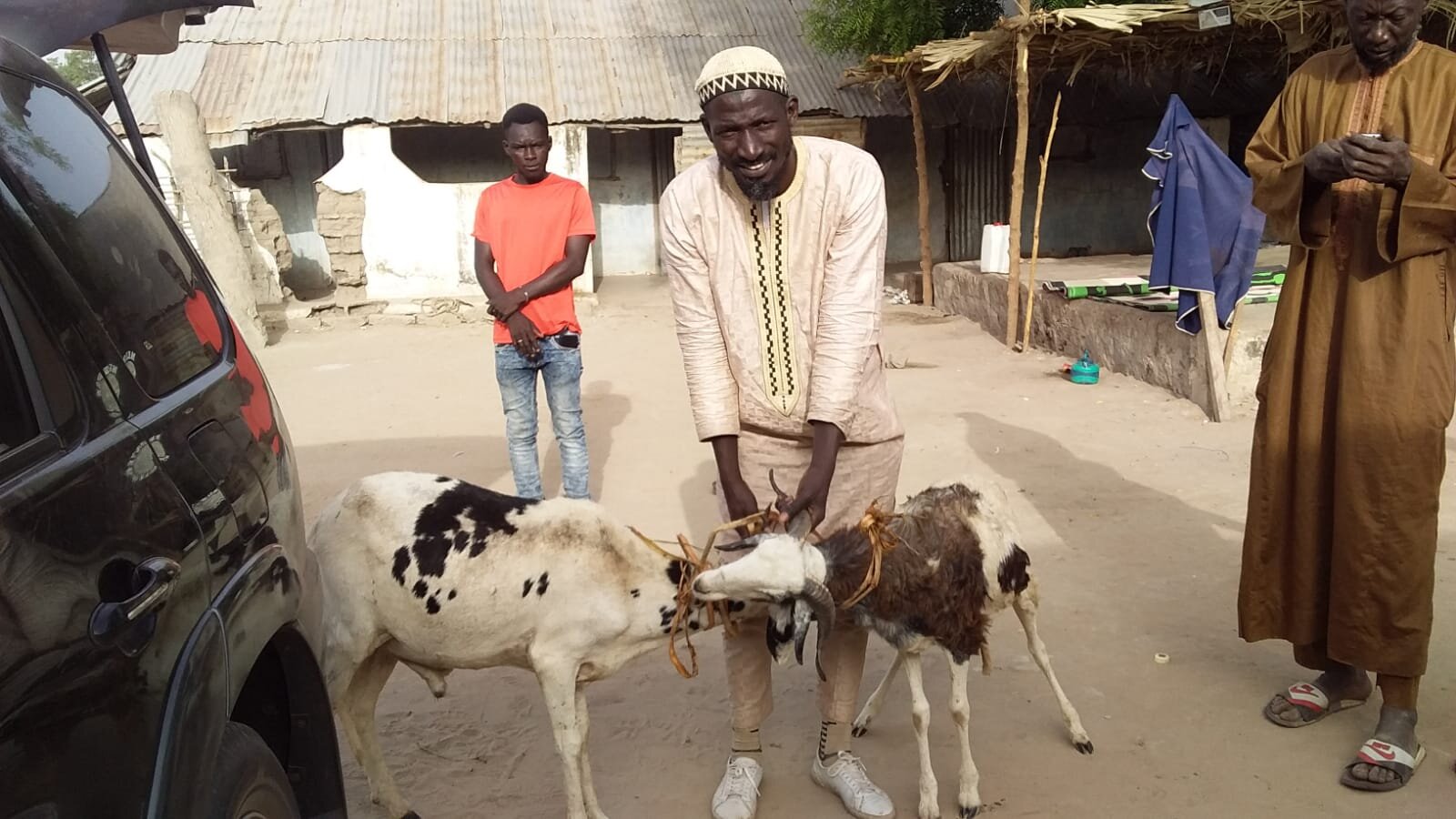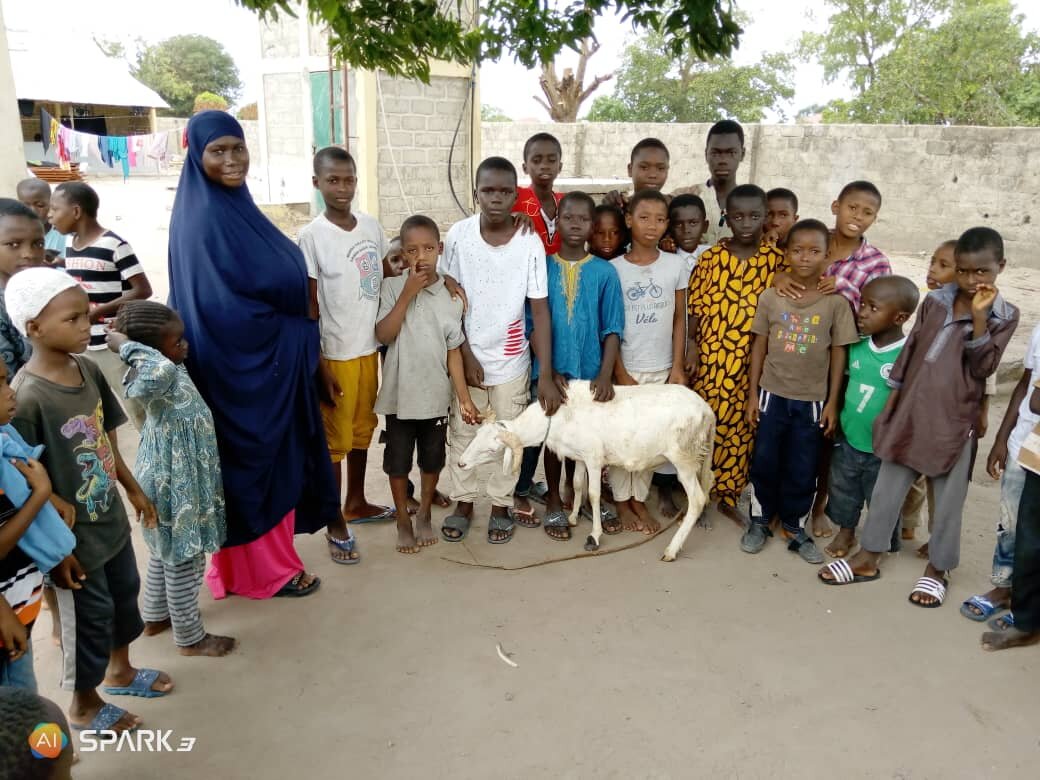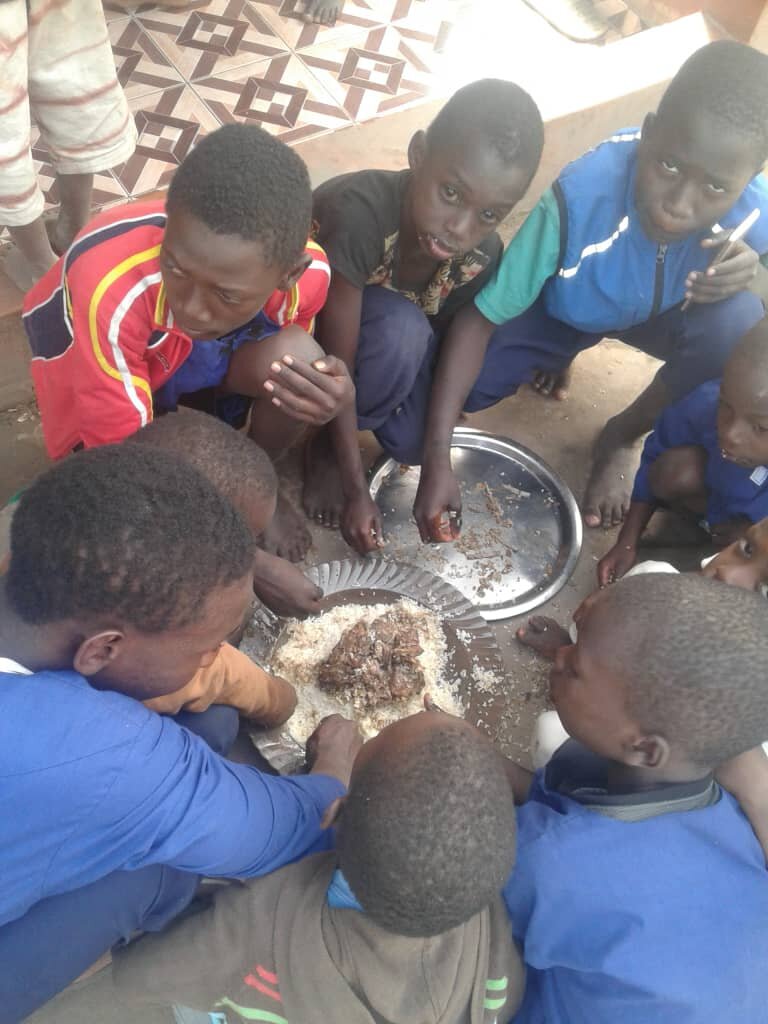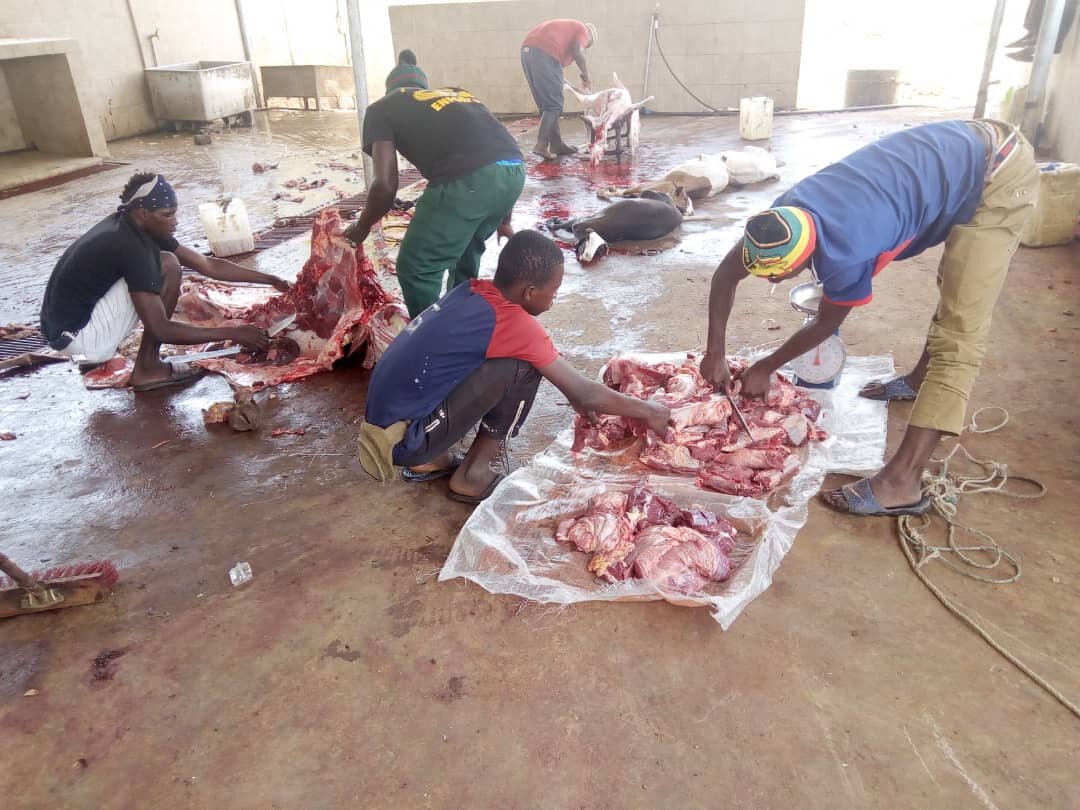
Eid/Qurbani
The Prophet (ﷺ) said, “It is the Sunnah of your father Ibrahim (as). For every hair of the Qurbani you receive a reward from Allah (SWT)."
Qurbani 2020 Appeal
£70 Ram - 1 Share
£400 Bull - 7 Shares
£57 Bull - 1 Share
Project Gambia and Qurbani
Project Gambia has been carrying out Qurbani projects since 1999.
The meat is distributed fresh after slaughter. The animal is purchased from local farmers to benefit the local economy. Each meat packet contains on average of three kilograms of meat, which will provide a family of four with wholesome meals for about a week.
Those who receive the Qurbani meat include widowed women, orphaned children, the poor, elderly or disabled people. For the majority of these people meat is not part of their regular diet. The Qurbani meat allows some families to eat meat after going without it for a whole year.
When families receive Qurbani meat, it fosters a real sense of hope for them and allows them to celebrate this important occasion along with millions of other Muslims across the world
Learn more about Qurbani
Significance of Qurbani
The practice of Qurbani can be traced back to the Prophet Ibrahim (AS), who dreamed that God ordered him to sacrifice his only son, Ismail. In his devotion to God, Ibrahim agreed to follow his dream and perform the sacrifice. But God intervened and sent a ram to be sacrificed in Ismail’s place.
Ismail was spared because Ibrahim proved he would sacrifice his son as an act of piety, despite the loss it would have caused him. The continued practice of sacrifice acts as a reminder of Ibrahim’s obedience to God.
Significance of Qurbani
Eid-al-Adha, the Festival of Sacrifice, is celebrated during the twelfth month of the Islamic calendar, known as Dhul Hijjah, which translates as ‘Lord of the Pilgrimage’. It is during this month that pilgrims travel to Mecca in order to visit the Kaaba. Hajj is performed on the eighth, ninth and tenth days of the lunar month. Eid al-Adha begins on the tenth and ends on the 13th.
What is Qurbani ?
Qurbani means sacrifice. Every year during the Islamic month of Dhul Hijjah, Muslims around the world slaughter an animal – a goat, sheep, cow or camel – to reflect the Prophet Ibrahim’s willingness to sacrifice his son Ismail, for the sake of God.
At least one third of the meat from the animal must go to poor or vulnerable people. Traditionally, a Muslim would keep one third of the meat for their family and give the final third to their neighbours.
FAQs
Who needs to offer Qurbani?
According to the Hanafi school. any adult, sane Muslim who possesses the Nisab value must give a Qurbani. So if you are eligible to pay Zakaat, you need to offer a Qurbani.
When should I donate my Qurbani?
Most people choose to donate in the days of Dhul Hijjah, but some will give their Qurbani up to a month before Eid. As Qurbanis in each location have a set quota, we suggest you give yours as soon as possible to avoid disappointment.
What is a Prophetic Qurbani?
After fulfilling his personal obligation, the Prophet (saw) gave an additional Qurbani in the name of the Muslims who could not afford to do so. We encourage all of our donors to revive this forgotten Sunnah.
When will my Qurbani be distributed?
Project Gambia works hard to ensure that the meat your Qurbani provides is distributed to those in need during the days of Eid al-Adha.
How important is it to give my Qurbani?
Qurbani is an obligation on all Muslims who possess the Nisab value, which generally means all who are eligible to pay Zakat. It also carries the great meaning of representing the sacrifice that Prophet Ibrahim (as) was prepared to make in honour of our Creator.
Which animals do Project Gambia provide for sacrifice?
We choose the sacrificial animals based on their availability and value in each location. Whether this is a ram,, goat or a share in a bull, the reward for your Qurbani will be the same.


